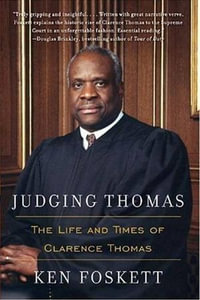
eTEXT
Evidence-based Investigative Interviewing
Applying Cognitive Principles
By: Jason J. Dickinson (Editor), Nadja Schreiber Compo (Editor), Rolando Carol (Editor), Bennett L. Schwartz (Editor), Michelle McCauley (Editor)
eText | 21 February 2019 | Edition Number 1
At a Glance
eText
$93.50
Instant online reading in your Booktopia eTextbook Library *
Read online on
Not downloadable to your eReader or an app
Why choose an eTextbook?
Instant Access *
Purchase and read your book immediately
Read Aloud
Listen and follow along as Bookshelf reads to you
Study Tools
Built-in study tools like highlights and more
* eTextbooks are not downloadable to your eReader or an app and can be accessed via web browsers only. You must be connected to the internet and have no technical issues with your device or browser that could prevent the eTextbook from operating.
ISBN: 9781351662000
ISBN-10: 1351662007
Published: 21st February 2019
Format: ePUB
Language: English
Publisher: Taylor & Francis
Edition Number: 1
Studying Just Got a Whole Lot Easier
Practice
Practice makes perfect.
The first step is to get acquainted with your built-in coach: CoachMe. Look for the icon located in the margin throughout your eTextbook and get ready for opportunities to practice and learn by doing.
Prepare
Get ready for success.
Bookshelf CoachMe's AI-generated questions in the margin and at the end of the chapter assist you in staying on track, keeping your focus, and improving your grades.
Learn-by-doing
Studying made simple and effective.
Learn-by-Doing is an approach based on learning science that has been proven to improve your grades and study experience. How? By discovering what you know and identifying where to focus, all while you build confidence and improve your grades.


Build Confidence
Confidence looks good on you.
You want good grades. We want that for you too. Your Bookshelf CoachMe practice questions and knowledge checks will help you stay on track, so you can show up to class with confidence.
Stay Focused
Own your time.
Bookshelf CoachMe quickly shows you what you know and what you need to spend more time on, so you can maximise your study sessions and take control of your time.
Prepare and Practice
Level Up.
The equation for success is simple. Prepare + Practice + Focus = Increased Confidence and can improve your grades.
You Can Find This eBook In
This product is categorised by
- Non-FictionLawLaws of Specific JurisdictionsLegal System in GeneralCourts & Procedure
- Non-FictionPsychologyCriminal or Forensic Psychology
- Non-FictionPsychologyExperimental Psychology
- Non-FictionLawLaws of Specific JurisdictionsFamily LawFamily Law & Children
- Non-FictionPsychologyPsychological Theory, Systems, Schools of Thought & Viewpoints
- Non-FictionLawLaws of Specific JurisdictionsLegal System in GeneralCivil Procedure, Litigation & Dispute Resolution
- Non-FictionPsychologyCognition & Cognitive PsychologyMemory
- Non-FictionPsychologyCognition & Cognitive Psychology
- Non-FictionPsychology
























